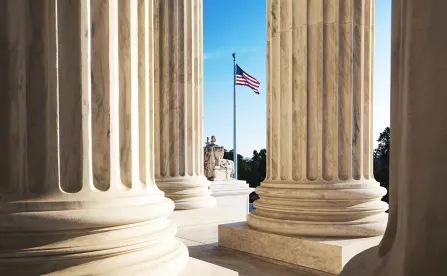Highlights
U.S. Supreme Court issues an 8-1 ruling that the Federal Arbitration Act allows employers to enforce arbitration agreements as to individual claims asserted under the California Private Attorneys General Act
Employers should consider reviewing their arbitration agreements, specifically waivers of PAGA and class and representative actions
Observers anticipate potential legislative changes should California seek to blunt the impact of this decision
In a highly anticipated decision for California employers, the U.S. Supreme Court held in Viking River Cruises, Inc. v. Moriana that a California court decision preventing arbitration of California Private Attorneys General Act (PAGA) claims is superseded, in part, by the Federal Arbitration Act (FAA).
In short, employers may now compel arbitration of employees’ PAGA claims on an individual basis. The arbitration of an employee’s individual claims, in turn, will deprive that employee of standing to bring a representative claim under PAGA
The majority consisting of Justices Neil Gorsuch, Stephen Breyer, Sonia Sotomayor, Elena Kagan, and Samuel Alito, with Chief Justice John Roberts, and Justices Brett Kavanagh, and Amy Coney Barrett joining in part, issued a ruling stating that the FAA preempts the California Supreme Court’s interpretation of PAGA, which invalidated “agreements to arbitrate only individual PAGA claims for Labor Code violations.” The majority held that “the FAA preempts the rule of [the California Supreme Court] insofar as it precludes division of PAGA actions into individual and non-individual claims through an agreement to arbitrate.”
In plain terms, under the Court’s holding, the plaintiff asserting a PAGA claim, who is subject to an arbitration agreement that requires her to arbitrate her claims individually, may be compelled to arbitrate her individual PAGA claim for California Labor Code violations. The Court noted that the FAA did not preempt PAGA, or the California Supreme Court’s prior holding wholesale waivers of PAGA claims are invalid. Rather, the U.S. Supreme Court explained the PAGA claims may be divided into “individual” and “non-individual” claims, and because the plaintiff agreed to arbitrate her claims against the defendant individually, the defendant could compel her to individually arbitrate her PAGA claims. Taking the analysis a step further, the majority went on to explain that the plaintiff’s “non-individual” PAGA claims must be dismissed because the plaintiff would no longer have standing to bring a PAGA action on behalf of other employees in California.
While the decision confirms a course of action for employers to follow to minimize PAGA litigation, in her concurrence, Justice Sotomayor provided a possible roadmap for California’s courts or the legislature to attempt to counter the impact of this decision. Justice Sotomayor wrote separately to opine that, in her view, the legislature could potentially modify the scope of the statutory standing under PAGA to permit an individual who does not have an individual claim to bring a PAGA representative action.
Given the history of California’s legislature and courts attempting to expand the rights of employees to litigate claims against employers, it is unlikely that this will be the last employers and employees will hear about the validity of arbitration agreements and California’s PAGA.
However, in the meantime employers have some clear direction about how to craft arbitration agreements to limit the scope of PAGA actions. Whether that route remains available in the long-term remains to be seen.






 />i
/>i

